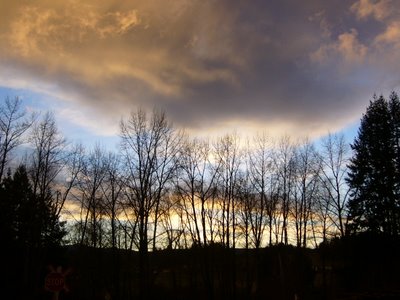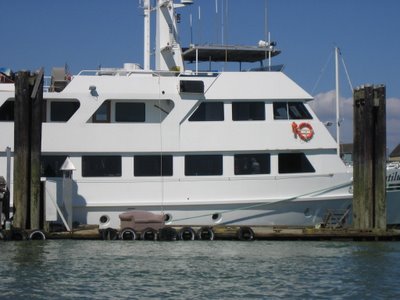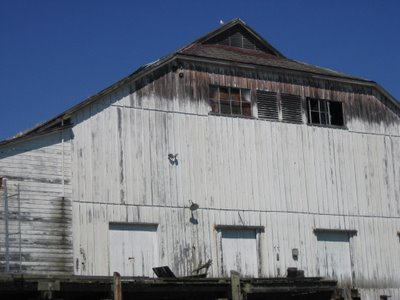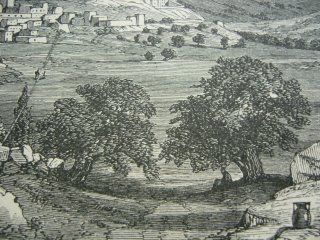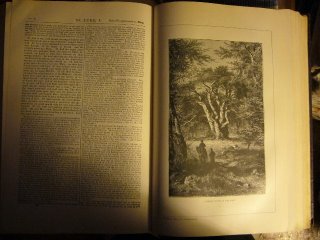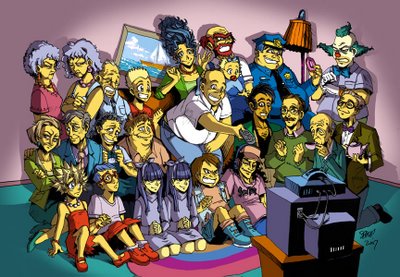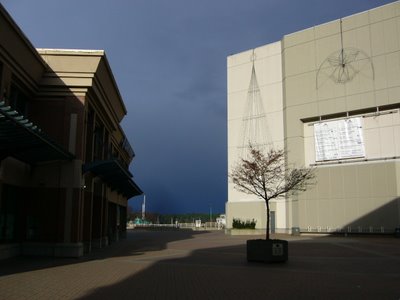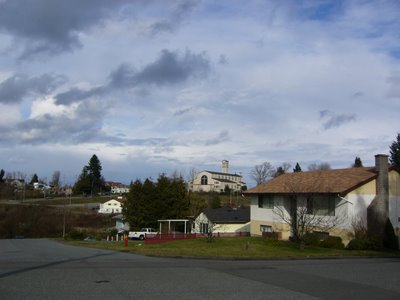Six and Two
"Sports metaphors capture the attitude that led us to where we are today. When the Bush White House, desperate but unserious, declares that "failure is not an option," theirs is the certainty of a football coach exhorting his players at halftime when they're down 28 points. At the end, unthinkable as it may be, the privilege of being the United States -- as opposed to, say, Russia or Germany -- is that we can lose wars, put them in the record books and move on.
But if losing the war is not quite the existential crisis that the advocates of escalation make it seem, it is also not as casual as the sports-score attitude that led us into it suggests. The years following the Iraq loss will be no easier than the decade after the loss in Vietnam. And the problems won't be confined to the war's aftermath. There will be the consequences of our fiscal irresponsibility, a deepening energy crisis, climate change, and the social fissures created by wide inequality and middle-class insecurity..."
Tuesday, February 27, 2007
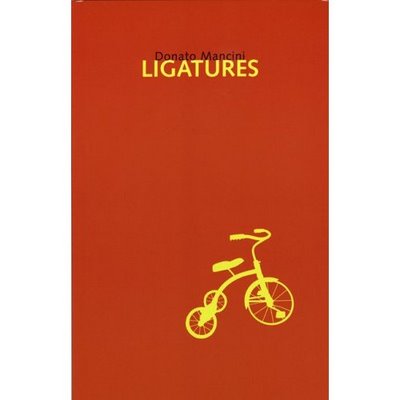
& speaking of New Star, my stablemate Donato Mancini's wonderful Ligatures just got reviewed on Amazon by the mighty Kevin Killian--
"This book had me standing up several times a day, so the book fell off my lap as my "lap" went away. The book, all dented now, remains a monument to the imagination, the strength of alphabet, as ivy and fluid, the way we keep making sense out of the insensible..."
Monday, February 26, 2007
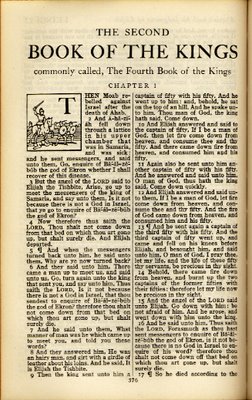
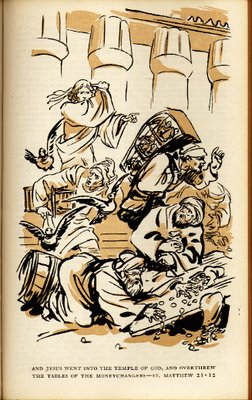

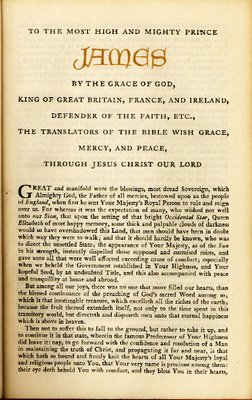

thanks to RM of New Star for these scans of a handsome and rare illustrated bible produced by the Modern Library in 1943 for the booming wartime trade & not, I think, reprinted. The photo of it nestled with its fellow stout "illustrateds" is from an impressive site dedicated to the happy pursuit of Modern Library Collecting...

anticipating a big MOMA show, pieces on Jeff Wall in the New York Times--
"“Believing in the specialness of what you are photographing is a disaster,” he said. “Then you think the photograph will be good because of what is in it. Cézanne taught me that that is not true. An apple is not very interesting. He expunged any attachment to the subject matter, except what he brought to it. In the painting he would bring it back to life. Only by believing that his painting it is what would enliven it could he make it happen.”"
and the New Yorker
"It may be enough to know that, in theory-drunk circles of the period, any sort of aesthetic appeal could be regarded as a stratagem of “late capitalist” ideology or some other wrinkle of malign social power. (The enemy’s identity was never entirely clear.) Artists were obliged to signal knowingness on this score. If critical paranoia poisoned visual and imaginative pleasure, that was unavoidable: a toll of enlightened consciousness. A lot of preachily condescending work resulted, and Wall was not exempt. But a certain quotient of unauthorized excitement, in “wow” effects of what amounts to single-frame cinematography, always set him a bit apart, as did a restlessly experimental drive..."
Sunday, February 25, 2007


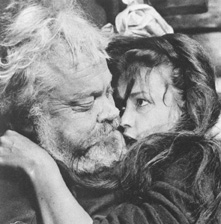
good omnibus review of books on Orson Welles--
"Welles was younger than the Surrealists, but jump-starting his career as he did—he was a professional stage actor by sixteen, in 1931—he came of age at roughly the same time as artists who were ten or so years older than he was. And like Dalì, whose best paintings spring from the spooky seacoast terrain he identified with his boyhood, or Joseph Cornell, whose boxes are so many little monuments to bygone charms, he was excited by the taste for optical tricks of the pre-modern, late-Victorian world of his parents' time, the era he had just missed. In Citizen Kane and The Magnificent Ambersons, with their sensuous, breathing sense of an earlier America, Welles has much in common with Dalì and Cornell in the way his subjects are both the past in itself and the filtered, circuitous way it is remembered. As with the two artists' work (and less sentimentally than most American filmmakers express it), these Welles movies suggest that all one's experience is tinged by the expectations and losses of childhood..."
Friday, February 23, 2007



Noises of Nature in the age of Briggs & Stratton--
"In the decades Krause has been recording biophony — he has compiled a library of more than 3,500 hours of pristine natural sound, which he thinks is the world’s largest private collection — nearly a third of the ecosystems he has captured have become aurally “extinct” because of habitat loss or the presence of noise-making machines. In this country, animals are continually forced to compete for bandwidth not only with one another but also with snowmobiles, off-road vehicles, Jet Skis and other loud motorized “toys”..."



really enjoying (as was, yesterday, cat Blinky, ears observing the R.I.A.A. curve)) the incredibly lush and dramatic first piano concerto of Franx Xaver Scharwenka (1850-1924). There are apparently about 40 CD's in this series. Frank O'Hara, thou shouldst be living at this hour!
Thursday, February 22, 2007

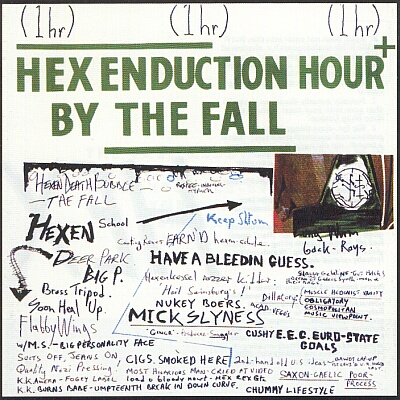
Memorex for the Krakens: The Fall's Pulp Modernism
"The Fall extend and performatively critique that mode of high modernism by reversing the impersonation of working class accent, dialect and diction that, for example, Eliot performed in The Waste Land. Smith’s strategy involved aggressively retaining accent while using - in the domain of a supposedly popular entertainment form - highly arcane literary practices. In doing so, he laid waste the notion that intelligence, literary sophistication and artistic experimentalism are the exclusive preserve of the privileged and the formally educated. But Smith knew that aping master class morés presented all sorts of other dangers; it should never be a matter of proving (to the masters) that the white crap could be civilized. Perhaps all his writing was, from the start, an attempt to find a way out of that paradox which all working class aspirants face - the impossiblility of working class achievement..."
Wednesday, February 21, 2007



indulge your "ostalgia" with these GDR Souvenirs
"Generally speaking, these things are not valuables; the value they possess lies in their symbolic character. In the main, the materials from which they are made, and the subject matter expressed, reflect the national folklore and craft tradition of the country of origin. Presents from other Communist-ruled countries tend often to be of an unsubtle revolutionary nature, and may carry slogans in favour of peace and friendship, solidarity, or the triumph of socialism..."
Tuesday, February 20, 2007

great glimpse of Gilbert and George on the verge of a big retrospective--
"They expect Tate Modern to be equally swamped: people are mad for art just now - although, personally, he and Gilbert disdain gallery going.
Gilbert: 'We don't look at other artists.'
George: 'We don't socialise with other artists.'
Gilbert: 'We haven't been to a gallery in 30 years.'
George: 'We don't belong to the gallery-going class, you see.'
So they didn't see Velasquez at the National Gallery? George yelps, as if stung. 'Never! Why would I want to join a long line of middle-class twits? We want to see the world as it is, naked. We left the house the other day at 6.25am, and there in the street was a dead, flattened rat, and a crow feasting from it. That's an amazing image, isn't it? I shall remember it forever.' At the memory of this ravenous crow and its macabre breakfast, the pair of them sip their Nescafe contemplatively..."
Monday, February 19, 2007
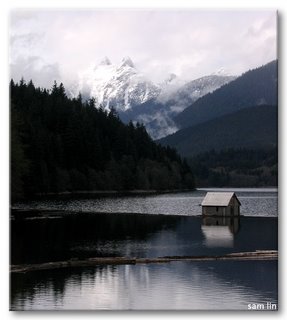
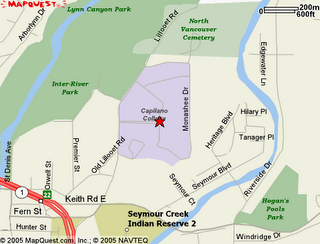
I'm giving a reading next month, here's the official announcement--
"OPEN TEXT READING SERIES #1
Sponsored by the Canada Council for the Arts
& The Creative Writing Program at Capilano College
The Spring 2007 OPEN TEXT series at Capilano College begins on March 1st 2007 with a reading by Nanaimo poet Peter Culley, who will be reading from his new work, "The Age of Briggs & Stratton."
12:30
Cedar 136
Capilano College
2055 Purcell Way
North Vancouver
Peter Culley, poet and art critic, has published Twenty-one (Oolican 1980), Fruit Dots (Tsunami 1985), Natural History (Fissure 1986) The Climax Forest (Leech, 1995) and Hammertown (New Star, 2003). The untitled second installment of Hammertown is due from New Star in the fall of '08. His writing on artists such as Stan Douglas, Roy Arden, Kelly Wood and Geoffrey Farmer has appeared in numerous catalogues and journals. Culley resides in South Wellington, near Nanaimo, on Vancouver Island, BC.
L'Orphee
So much of L' Orphee
plays in the grim middle-aged way
poor Spicer never lived to see
that its like I know better;
ie Jean Marais is how we're
supposed to look on the inside
& those hoopleheads at the Cafe
rioting over Johnny Ray
as Mrs. Mills tinkles at 78
& the Hugo Boss bike cops drop their mitts--
what Martian could have predicted an Elvis
emerging from their thin Hugenot gruel?
Why do the youngsters blame me?
Don't their radios get the CBC?
-- from "The Age of Briggs & Stratton"
For info:
Roger Farr
rfarr@capcollege.bc.ca
604.986.1911 (2554)
http://capilanocreativewriting.blogspot.com
[Coming soon: Marie Annharte Baker, March 7th; Dorothy Trujillo Lusk, March 15th]"
~
Subscribe to:
Posts (Atom)



